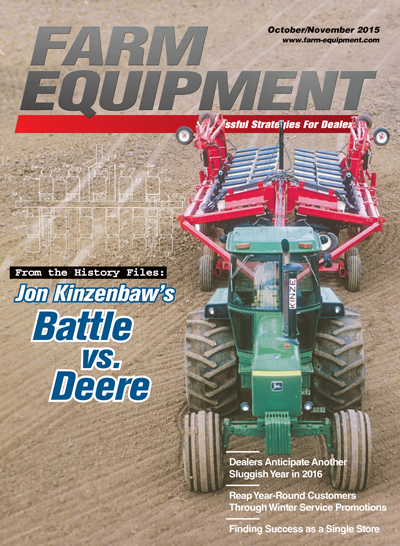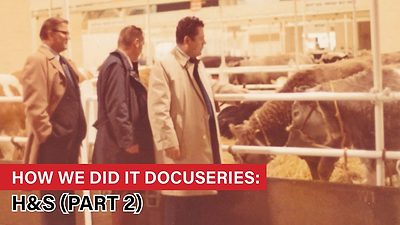Advertise Follow Us
Farm Equipment

View Archived Issues
October/November 2015
Volume: 53
Edition: 8
From The History Files
Jon Kinzenbaw's Battle vs. Deere
-
Table of Contents
Table of Contents
2016 Dealer Business Outlook & TrendsDealers Expect Another Year of Sluggish Sales
Low commodity prices and high used equipment inventories will continue impacting new equipment sales in the year ahead.Read MoreThe Best of Dealer Winter Service Promotions
Creative approaches to winter service promotions help these dealers earn their customers’ business all year long.Read MoreThe Rear-Fold Planter and the Battle that Ensued
This chapter from Jon Kinzenbaw’s book, Fifty Years of Disruptive Innovation, shares his story behind John Deere’s effort to squeeze Kinze Manufacturing out of the planter building business.Read MoreHow To Sell Stalk StompersStalk Stompers Can Do More Than Minimize Tire Damage
Devices for flattening corn stalks during harvest can also help facilitate residue decomposition.Read MoreFinding Success as a Single-Store Dealership
Capital Tractor achieves success by empowering its staff and keeping used equipment inventory low.Read More -
Featured Articles
Featured Articles
2016 Dealer Business Outlook & TrendsDealers Expect Another Year of Sluggish Sales
Low commodity prices and high used equipment inventories will continue impacting new equipment sales in the year ahead.Read MoreFinding Success as a Single-Store Dealership
Capital Tractor achieves success by empowering its staff and keeping used equipment inventory low.Read MoreThe Rear-Fold Planter and the Battle that Ensued
This chapter from Jon Kinzenbaw’s book, Fifty Years of Disruptive Innovation, shares his story behind John Deere’s effort to squeeze Kinze Manufacturing out of the planter building business.Read More -
Online Extras
Online Extras
-
Products in Action
Products in Action
















